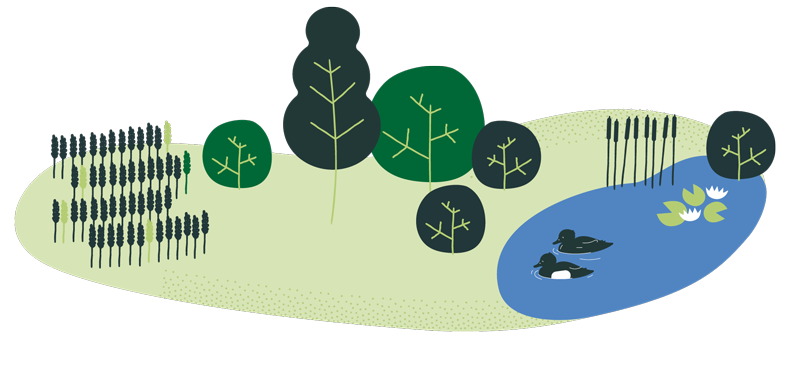Exploring Sweden’s Approach to Antibiotic Resistance in the Environment Sector
The Swedish strategy stipulates that antibiotics and other antimicrobial agents are used and managed in a responsible and environmentally friendly manner. Maintaining low levels of resistant bacteria and antibiotics in the environment reduces the risk of transmission of resistant bacteria to humans and animals via water, food, soil, sludge and manure.
Examples of organisations addressing antibiotic resistance in the environment in Sweden
The Swedish Environmental Protection Agency conducts and coordinates Sweden's environmental efforts and is responsible for certain monitoring antimicrobials in surface water and wastewater. In collaboration with others, the agency work to preserve biodiversity, reduce climate impact and contribute to a resource-efficient society. The agency participate in international groups and networks such as the One-Health Network Register of Commission expert groups and other similar entities as well as the European Environment Information and Observation Network on Antimicrobial resistance and the associated Eionet Forum.
The Swedish Environmental Protection Agency (naturvardsverket.se)
The Swedish Medical Products Agency contributes in a multitude of ways to the work against development and spread of antibiotic resistance in the environment. For example, via implementation of the new regulation on veterinary medicinal products, input to the reform of the EU pharmaceuticals legislation as well as governmental assignments concerning environmental premiums for sustainable production of pharmaceuticals including antibiotics.
The Swedish Medical Products Agency (lakemedelsverket.se)
The Swedish Knowledge Centre on Pharmaceuticals in the Environment is a transdisciplinary and cross-sectoral platform at the Medical Products Agency that disseminate knowledge and facilitate dialogue between national and international stakeholders and governmental bodies concerning the life cycle of human and veterinary medicines.
The Swedish Knowledge Centre on Pharmaceuticals in the Environment (lakemedelsverket.se)
The national authorities responsible for managing environmental risks and other organisations are involved in a range of activities and initiatives:
- Sweden promotes increased environmental consideration in legislation to reduce emissions stemming from pharmaceutical production to the environment.
- Sweden promotes increased implementation of measures by prescribers and stakeholders to reduce emissions from pharmaceutical use to the environment.
- Within the framework of implementing the EU Strategy for the Baltic Sea Region (EUSBSR), Swedish government agencies cooperate with stakeholders in the Baltic Sea Region pharma platform. The platform is used to facilitate the dissemination of knowledge and encourage the implementation of measures aimed at decreasing the emission of pharmaceuticals to the environment.
EU Strategy for the Baltic Sea Region (EUSBSR.eu)
CARe - Centre for Antibiotic Resistance Research in Gothenburg is a collaborative and interdiscplinar research centre at the University of Gothenburg and Chalmers University of Technology that conducts research into the environmental dimensions of antibiotic resistance.
CARe - Centre for Antibiotic Resistance Research in Gothenburg (gu.se)
Sweden is participating in the EU4Health action JAMRAI2 where Swedish Veterinary Agency and Swedish Medical Products Agency are supporting the creation of a European Antimicrobial Resistance Surveillance Network, dedicated to AMR surveillance in the environment.
Read more at the EU Funding & Tenders Portal (europa.eu)
SLU Future One Health is a strategic platform for interdisciplinary research and collaborations that provides knowledge and solutions to good health and welfare for animals and people in sustainable ecosystems.
SLU Future One Health (slu.se)
Antibiotic Smart Sweden’s Criteria for Municipal Wastewater
Learn more
This article provides an explanatory model of the role of the environment in antibiotic resistance and in One Health:

